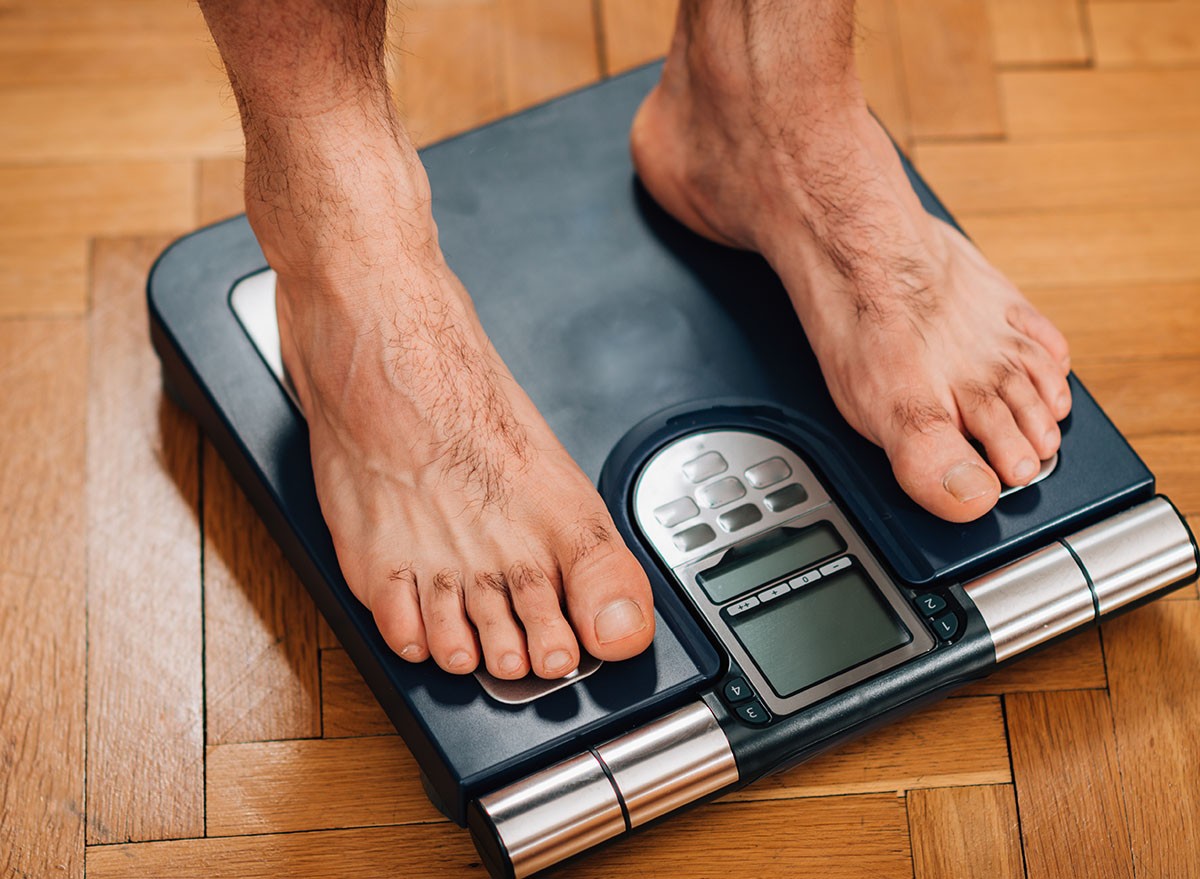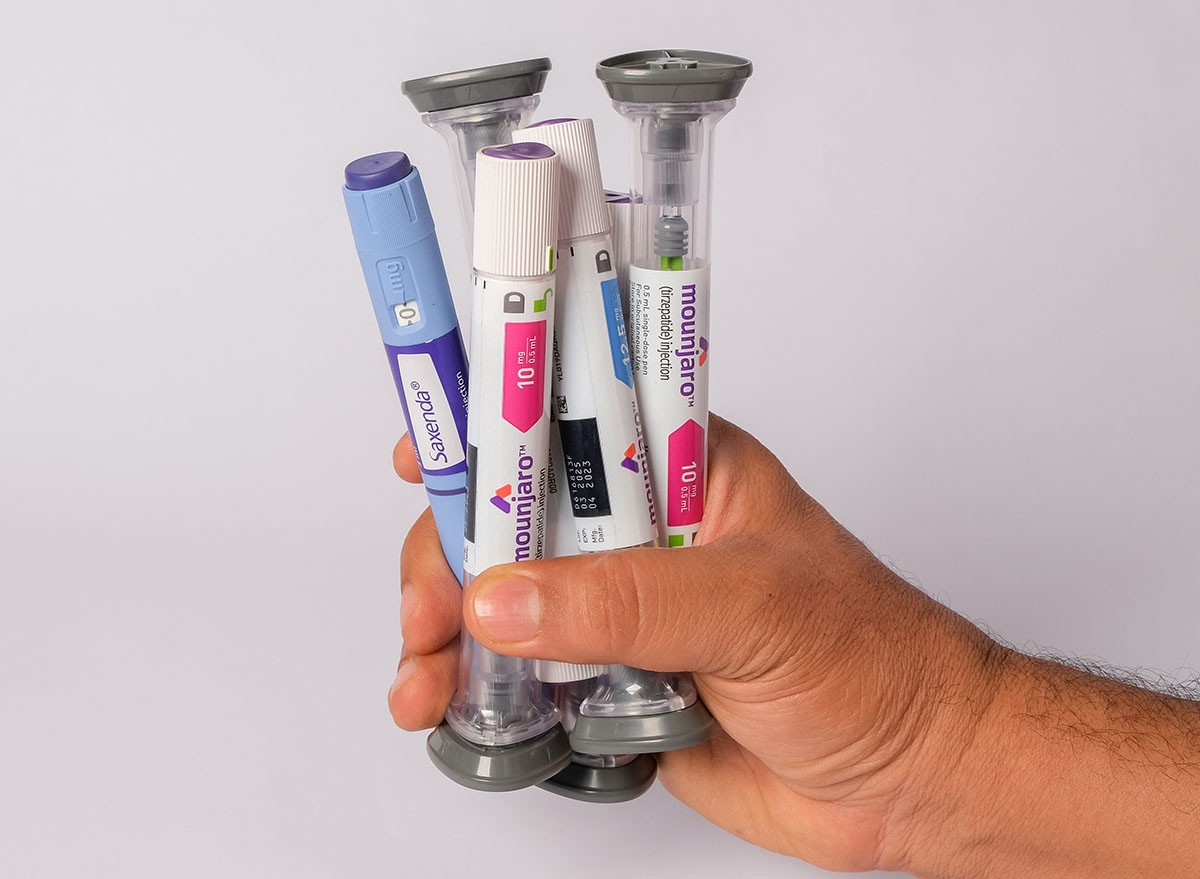This Doctor Lost 140 Pounds and Says GLP-1 Microdosing Saved His Life

Many of us feel trapped in a cycle of failed diets and constant food cravings. Dr. Kevin Joseph knows that struggle all too well. A dedicated internal medicine physician from upstate New York and a frustrated binge eater since college, Dr. Joseph found himself weighing in at 345 pounds in February 2023. Through a comprehensive approach that combined treating underlying health conditions, microdosing GLP-1 agonists, and implementing targeted lifestyle changes, he lost an incredible 140 pounds in just 10 months. "My goal with sharing my story is to spread that passion and educate as many people as possible to be able to take control of their own health and advocate for themselves when it comes to their medical treatment plans," says Dr. Joseph. Discover how his medical expertise and personal journey can help transform your relationship with food and weight management for good.
Treat Your Underlying Conditions First

Before you can successfully lose weight, you need to address what's holding you back. For Dr. Joseph, severe sleep apnea was derailing his weight loss efforts. "I would stop breathing 81 times every hour—more than once every minute," Dr. Joseph recalls. This condition left him exhausted, with morning headaches and extreme daytime fatigue. Without treating his sleep apnea with a CPAP machine first, Dr. Joseph realized any attempt at weight loss would be nearly impossible due to constant exhaustion and poor decision-making. Your underlying health conditions might be different, but addressing them first creates the foundation for successful weight loss.
RELATED: 15 Things to Know Before Requesting Ozempic for Weight Loss
Confronting Your Food Addiction

You can't outrun food issues without facing them head-on. Dr. Joseph had struggled with binge eating disorder since college, using food as his primary coping mechanism for stress. "It was how I would handle stress… the only solace I could really find was food," Dr. Joseph explains. His binge eating had developed into a deeply ingrained habit over many years, particularly during his competitive pre-medicine studies. Recognizing and accepting this disorder was crucial to his recovery journey. If food has become your emotional crutch, acknowledging this pattern is your first step toward breaking free from it.
The Power of Intermittent Fasting

Setting clear boundaries around when you eat can help regain control. Dr. Joseph implemented intermittent fasting with a specific eating window from 12 PM to 8 PM. "I think intermittent fasting helped me get control over my eating habits and I was able to set strict boundaries," Dr. Joseph shares. This approach helped him establish mental discipline and regain some control over his binge eating tendencies. Creating your own eating schedule can provide structure and reduce the constant internal dialogue about when and what to eat next.
Microdosing Tirzepatide – The Game Changer

Your relationship with food can fundamentally change with the right medical support. After losing about 25 pounds through diet and exercise alone in the first few months, Dr. Joseph began microdosing tirzepatide (a GLP-1/GIP dual agonist) through a compounding pharmacy. "I started at one milligram weekly and I had great benefits. The biggest one was the food noise was almost gone," Dr. Joseph reveals. Instead of starting with the recommended 2.5mg weekly dose, he began with just 1mg weekly, which provided significant benefits without unnecessary side effects. His approach demonstrates how lower doses can still deliver remarkable results while minimizing potential downsides.
RELATED: 20 Possible Ozempic Side Effects
Understanding "Food Noise"

You might not realize how much mental energy food thoughts consume until they quiet down. Dr. Joseph describes food noise as "this nagging constant thought about food… every second of every day I was thinking about what I was gonna eat for lunch, what is it gonna be for dinner, if I didn't like dinner what would I eat after." For those struggling with food addiction or binge eating, this constant internal dialogue can be exhausting and overwhelming. When GLP-1 agonists reduce these intrusive thoughts, many people experience mental freedom they haven't felt in years.
Fine-Tuning Your Medication Protocol

Your body's response to medication will evolve over time. Dr. Joseph started with 1mg of tirzepatide every seven days for eight weeks. When he noticed the food noise returning and weight loss stalling, he adjusted to 1mg every five days. "When it comes to these medications, you can either increase the dose or you can increase the frequency," Dr. Joseph explains. This personalized approach to medication management highlights the importance of paying attention to your body's signals and making adjustments accordingly.
Defining Microdosing GLP-1 Agonists

You don't need maximum doses to get maximum benefits. According to Dr. Joseph, microdosing means "dosing at a level that is considered sub-therapeutic in clinical trials." For tirzepatide specifically, the minimum therapeutic dose in studies was 5mg, making his 1mg dose and even the standard starting dose of 2.5mg technically forms of microdosing. "I consider 2.5 milligrams in that range," Dr. Joseph confirms. This approach can help minimize side effects while still providing significant benefits for appetite regulation, metabolic health, and weight loss.
RELATED: What Happens to Your Body When You Stop Taking Ozempic
Incorporating Peptide Therapy

Your weight loss journey can benefit from complementary treatments. As Dr. Joseph continued researching, he incorporated additional peptides into his regimen. "The ones that I advocate for and that I was taking were tesamorelin, ipamorelin, and BPC," Dr. Joseph shares. He credits tesamorelin especially for helping reduce abdominal fat: "After taking two cycles of tesamorelin, I do believe my abdomen or like my midsection is the leanest it's ever been." These peptides were used in 10-week cycles, with 10 weeks on followed by 10 weeks off.
The Crucial Role of Resistance Training

Your muscles are metabolic powerhouses that need regular stimulation. Dr. Joseph added resistance training five days a week to his routine, though he started with just two to three sessions weekly. "Resistance training not only adds muscle mass but it also helps the central nervous system and it helps that mind-muscle connection," Dr. Joseph explains. Beyond weight loss, building muscle mass increases your resting metabolic rate and provides protection against injuries and frailty as you age.
Transforming Your Metabolism

Your metabolic health extends far beyond just weight loss. Dr. Joseph noted signs of insulin resistance despite not having diabetes, including dark velvety patches on his skin (acanthosis nigricans). "Microdosing the tirzepatide just really improved my metabolism. It really got everything going and it made my body just function properly," Dr. Joseph shares. The metabolic benefits of GLP-1 agonists include improved insulin sensitivity, reduced inflammation, and better overall cellular function—benefits that persist even after reaching your weight loss goals.
RELATED: 20 Things to Avoid While on Ozempic
Maintaining Your Progress

Your success depends on finding a sustainable long-term approach. Dr. Joseph continues to microdose tirzepatide at 1mg every five days for "my metabolic health just for the anti-inflammatory effects," even after reaching his weight loss goals. He no longer uses growth hormone-related peptides due to potential concerns about elevated IGF-1 levels, showing how treatment plans should evolve based on emerging research and individual needs. Developing your own maintenance strategy is essential for keeping weight off long-term.
Becoming Your Own Health Advocate

Your health journey requires both medical guidance and personal responsibility. Throughout his transformation, Dr. Joseph combined his medical knowledge with a willingness to research new treatment options. "I want to provide as much knowledge regarding peptides, protocols, side effects… you name it," he says about his mission to help others. His experience demonstrates the power of being an active participant in your health care, working with medical professionals while also educating yourself about innovative approaches to health optimization. And if you enjoyed this article, don't miss 20 Incredible Ozempic Success Stories of All Time.




